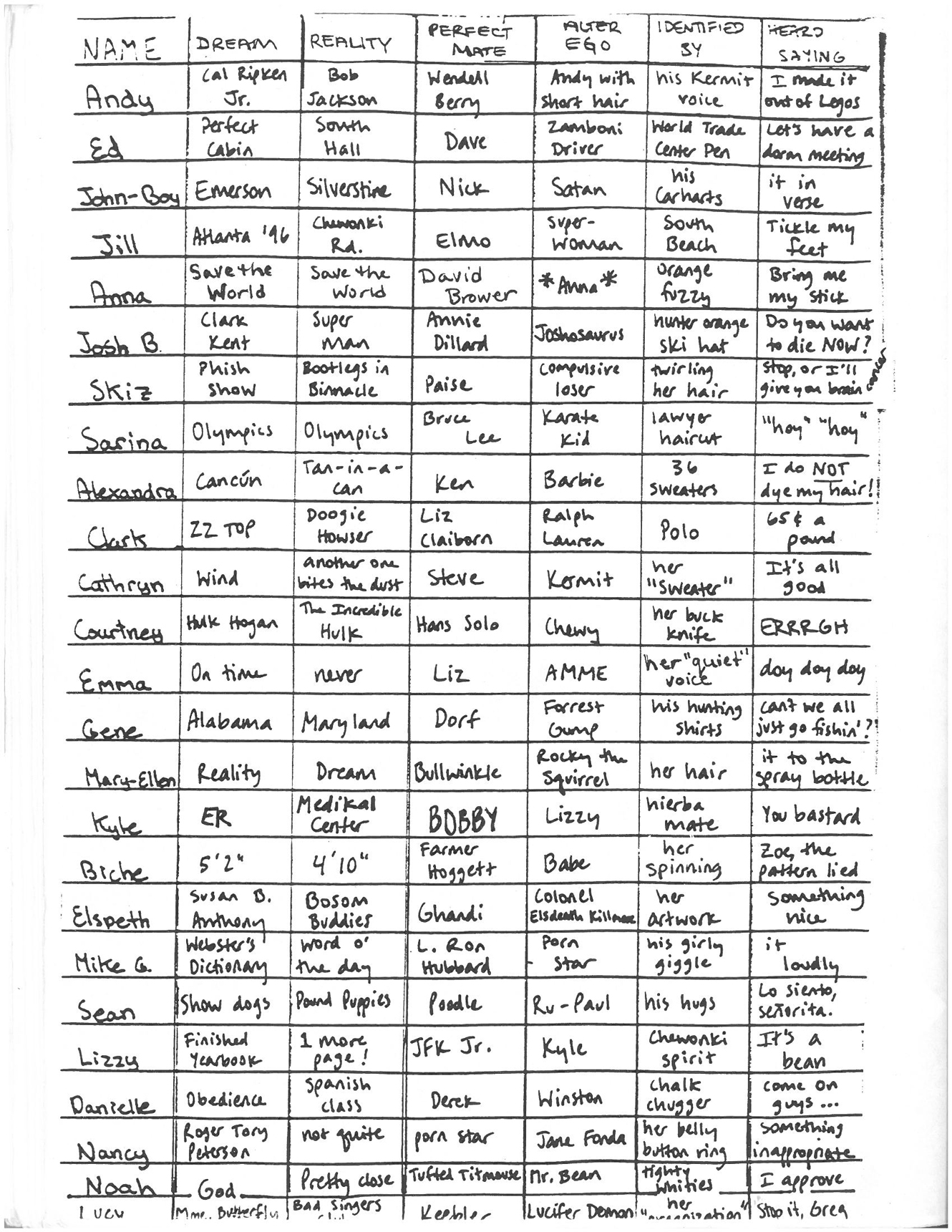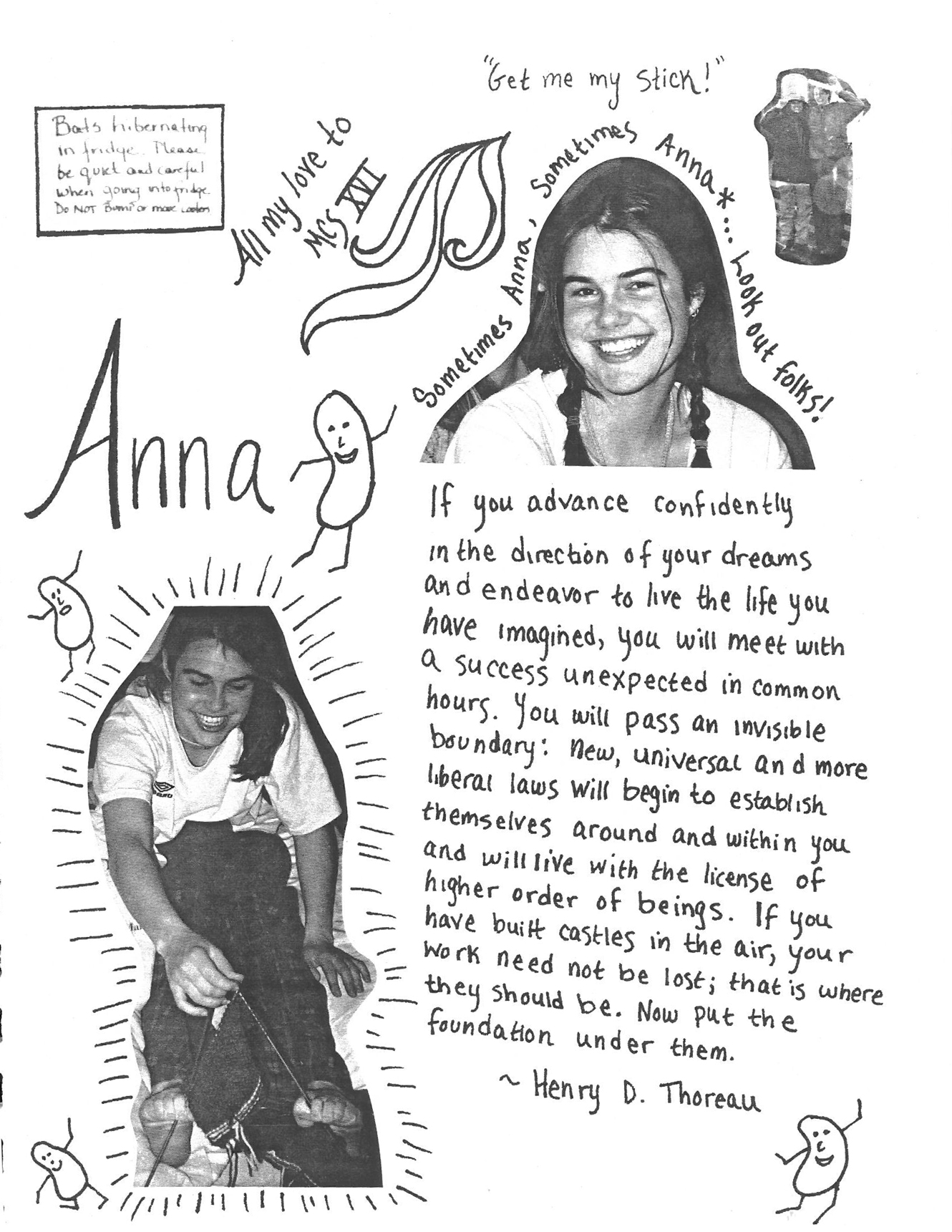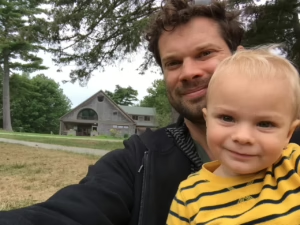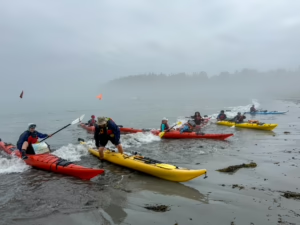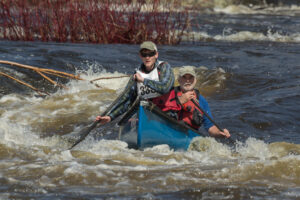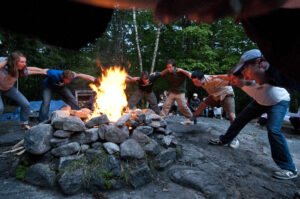In Maine Coast Semester 16’s yearbook, from spring 1996, there’s a chart showing each student’s name followed by columns of descriptors the yearbook committee provided. In the “Dream” column for Anna Brown is “Save the world.” In the “Reality” column for Anna Brown is “Save the world.”
She quoted Henry David Thoreau on her yearbook page: “If you advance confidently in the direction of your dreams and endeavor to live the life you have imagined, you will meet with a success unexpected in common hours…If you have built castles in the air, your work need not be lost; that is where they should be. Now put the foundation under them.”
Brown’s crystal-clear aspirations as a high school junior at Maine Coast Semester began forming when she was a child in Freeport, Maine. In 1988, she and some fellow third-graders were troubled by what they were learning about environmental degradation. They decided to take action, appearing before the Freeport Town Council to demand that the town ban polystyrene food packaging. This was particularly controversial because McDonald’s was just coming to town. Two years later, after repeated appeals and a conversation with a McDonald’s lawyer on national TV, the children prevailed: Freeport announced a ban, the first Maine municipality to do so.
Brown, now the North American Climate Adaptation Lead for The Nature Conservancy (TNC)’s global office, told this story in a 5/4/2019 op-ed in the Portland Press Herald, “Out of grade-school activism, lessons in changing the world,” the week after Maine Governor Janet Mills signed a bill into law banning single-use polystyrene food and drink containers starting in 2021. Maine is the first state to do so. Brown and her friends from third grade rightfully take some credit.
After living out-of-state and then outside the U.S. for years, Brown has returned to Freeport with her global perspective. She recently told us how she developed her vision and why local activism is essential in dealing with global environmental issues:
“My parents and my elementary school experience were very formative for me: planting seeds that have been further cultivated since then, including while at the Maine Coast Semester,” says Brown. “This includes learning the value of community, the importance of being accountable, and of the need to roll up sleeves and do the hard work, whether that’s shoveling compost or looking deeply at oneself.”
“We are in a period of unprecedented global change,” she says. “While this is the product of centuries of exploitative and unsustainable practices and worldviews, we are now in a countdown mode. We have 11 years to fundamentally transform how we engine our economy and how we co-exist on the planet as fellow humans and with other life in order to avoid climate and ecological breakdown.
“The seemingly small act in one town in Maine [Freeport’s 1990 polystyrene ban for which she and her elementary school friends lobbied] is important for a few reasons. 1) It’s an example of the need for policy change at all levels. For too long, much of the environmental action narrative has focused on how as individuals we can change our behaviors and practices. Indeed, this is important. But we can’t rely on those with goodwill and means to bring about the rapid pace of transformation we need. We need policies that allow for much more rapid and far-reaching adoption.
“2) It’s a reminder that localities lead. It’s very rare for innovation and change to be test-run at national and international scales. That happens first in localities. We need many more localities to be experimenting, pushing the envelope, and setting a course for a vision of the world we want to live in. Eventually, other scales catch up. The more local action that is unfolding, the more rapid the change can be at other scales.
“3) It’s time for all of us to be bold, to set ambitious goals, and to be political. Each of us needs to show up, roll up sleeves, and advocate for change. Many of our decision-makers are craving this kind of input from constituents. They can do their jobs better if we show up with demands and requests. With such strong corporate interests vested in the status quo, we need to be louder, more persistent.”
Keep making noise, Anna Brown.
